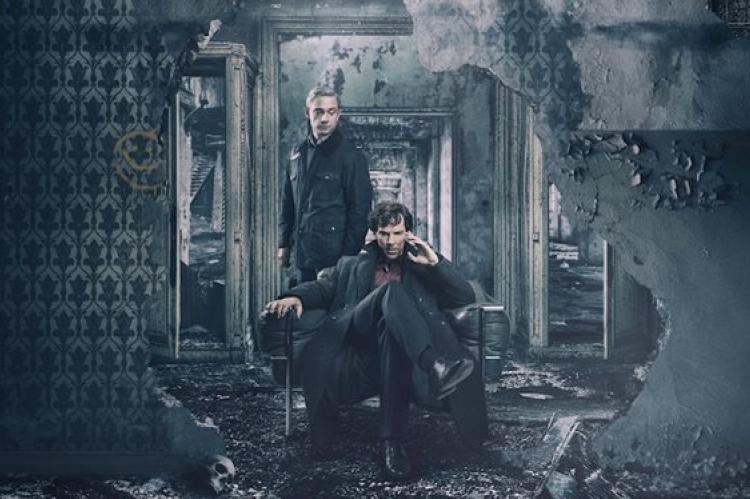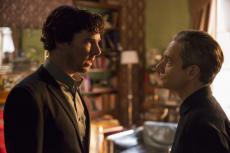Sherlock - The Final Problem
Despite my best efforts to enjoy this 90-minute series ending, I found myself disappointingly frustrated.
By lostinbluejazz
I hoped that it would not happen. But sadly, I was struck down with “Moffat frustration” during last night’s series finale of Sherlock. Unfortunately, I started to suffer very early on. As soon as the clown popped its head out, I knew that it was to a symbol for the farce that was to follow. Despite the brilliantly unnerving and haunting scenes previous to this – classic Mark Gatiss horror – once Benedict Cumberbatch appeared from the window, and Martin Freeman joined him and hastily batted away the superb cliffhanger of the previous episode, all that fizzling tension fell flat on its face. Despite my best efforts to enjoy this 90-minute series ending, I found myself disappointingly frustrated.
I find that this happens with the work of Steven Moffat. I love him as a writer, but sometimes I feel he tries to do too much. His grand ambitions are sometimes too ambitious. This final episode was a case in point. I simply couldn’t suspend my disbelief as they miraculously escaped the bomb blast in 221b Baker Street. Despite the myriad of moral problems that Euros Holmes had set for her brother Sherlock, it was hard to get emotionally involved when Sherlock himself seemed to be primarily preoccupied with the girl on the plane. And the idea of Sherlock “coming home” felt hastily devised and underwritten. It felt like a poor man’s Skyfall.
After the shock and disappointment of Mary Watson’s death in episode one, I felt like this gave enough impetus and potential material to explore the relationship between Sherlock and Watson in the aftermath of this tragic event. Episode two, therefore, felt like a missed opportunity. Here was a darkly disturbing storyline with a superb performance by Toby Jones as the villainous Culverton Smith. It brought Sherlock and Watson back together in such a way as would have been fitting for a series finale. Yet instead of exploring the emotional impact of Mary’s death on their relationship, the writers (Moffat and Gatiss) decide to repair the schism almost immediately and move on to the next juicy idea that they had devised, that of the forgotten sister. Yet this could have been the subject of a whole series in and of itself. Here, crammed into one-and-a-bit episodes, it was not given the room to breathe that it deserved. Surely the idea of a “long-term plan” by Moriarty could have been made truly long-term (and then potentially more satisfying) in the sense of stretching it over into another series?
I understand the logistics of making Sherlock. Due to the work demands of the actors involved, Moffat and Gatiss admit that this could be the last we see of this modern-day take on the classic sleuth. Yet in previous interviews, Cumberbatch has always freely admitted his desire to return to the character again if the stories are there. Even if that is only once every couple of years, surely it is worth it?
Overall, the problem with The Final Problem was that there were simply too many problems to care about. Despite my frustrations with this episode however, I hope this isn’t the last we have seen of Benedict Cumberbatch and Martin Freeman’s partnership. Because when it’s good, Sherlock is exceptionally good.



